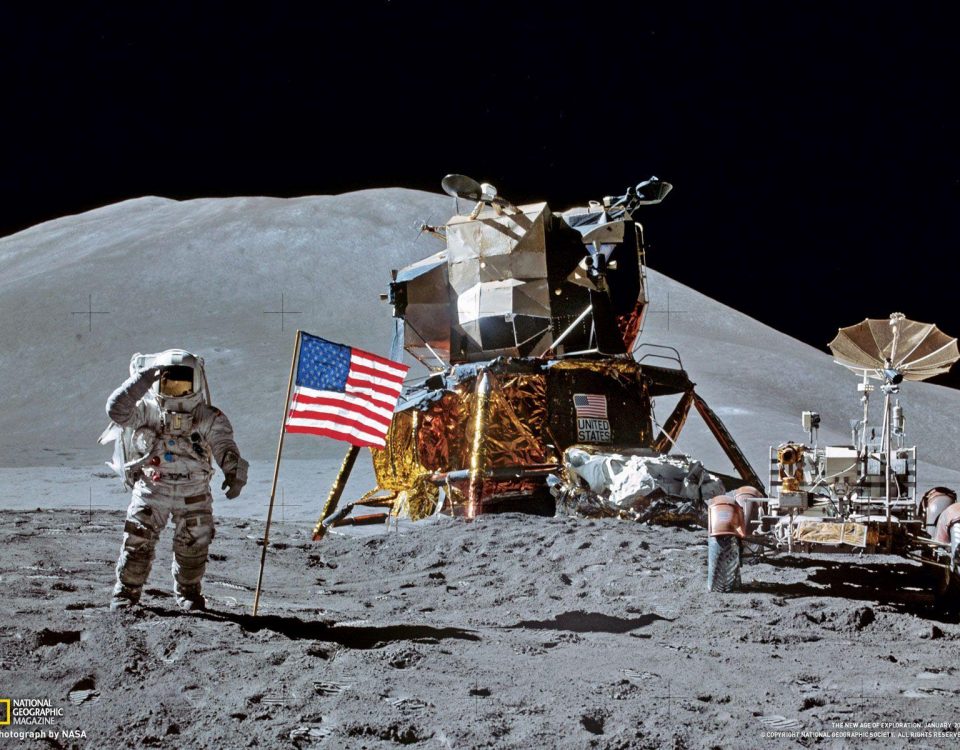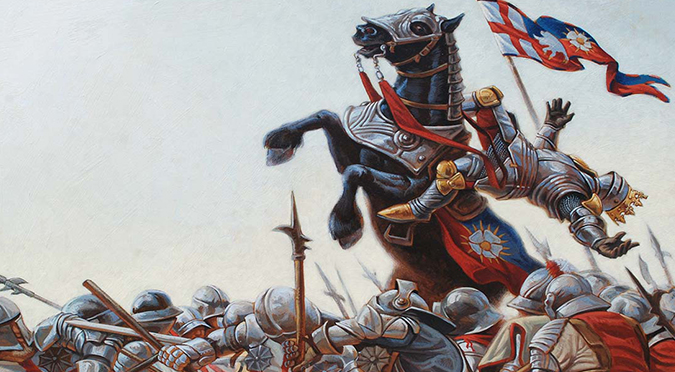
Richard the Third (and the War of the Roses)
August 16, 2017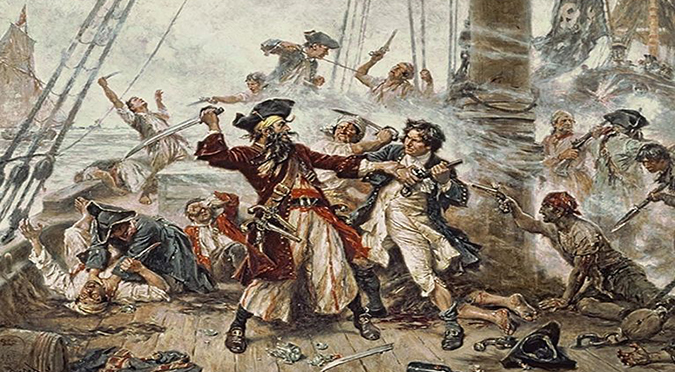
THE GOLDEN AGE OF PIRACY (Part Three)
November 6, 2017CONTENT WARNING: this article contains some mild language, crude humor, and alcohol.
Alexander III of Macedon 356-323 BCE
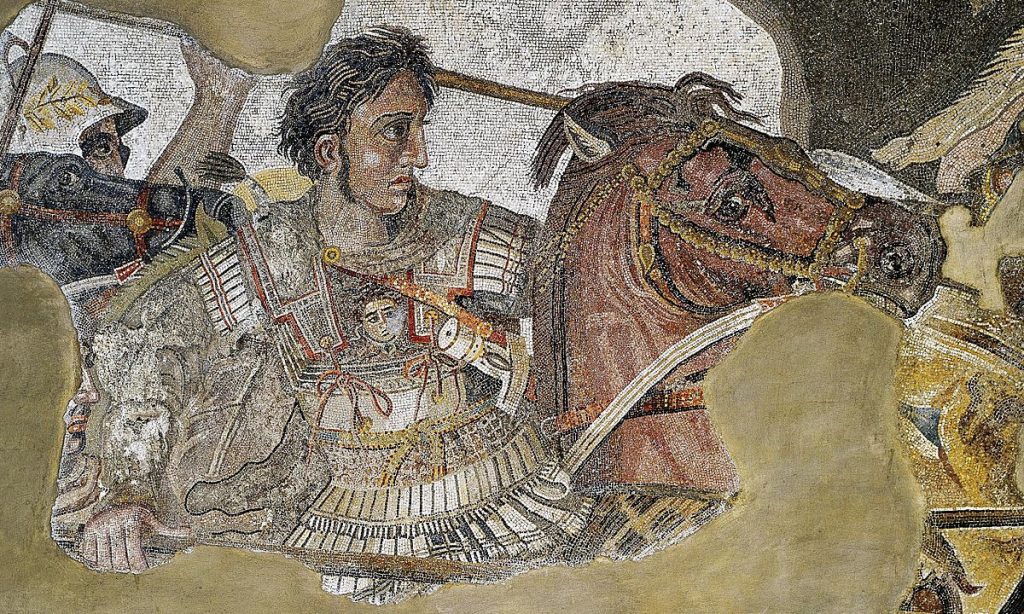
Continued from Part One: the origin of Alexander the Great
Alexander vs the World
In 333 BCE, Alexander first earned his reputation. It was at the Battle of Issus where Alexander truly proved himself. Much like the President from ‘Independence Day’, Alexander fought alongside his men against unfathomable odds and came out on top. After his initial incursions into Persian territory, Darius III decided to deal with this Alexander punk personally. Much to his surprise, Alexander turned out to be more than a minor nuisance.
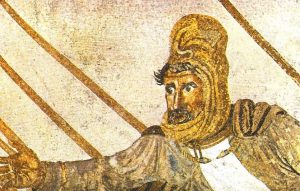
“Oh snap!”
Against all odds, Alexander’s rag tag band of 40,000 Greek Hoplites took on an army of 100,000 Persians on their own turf and beat them into submission. It was as though Alexander had unlocked ‘God Mode’ IRL. Alexander (the Great) threw out the rule book and charged headfirst at the enemy line, like a hyped-up raccoon with Rabies.
Darius was absolutely shocked at the ferocious brutality that Alexander unleashed on his men. During the chaos, Alexander’s men managed to capture Darius’s mom, wife and two daughters, while Darius himself was forced to retreat to Babylon in desperation where he surrounded himself with a few thousand reinforcements. Alexander didn’t care, nothing would stop him now. Like a T-800 on a mission, Alexander could not be bargained or reasoned with. Drenched in the blood of their comrades and exhausted from their long journey, the only thing that kept the Macedonians going was Alexander’s sheer will.
 Alexander’s goal was clear: to conquer the entire Persian Empire! He declared himself the “King of All Asia” – which is pretty baller, but also kinda funny when you consider that he didn’t even know that China existed. Following the crushing victory at Issus, Alexander the G followed it up with the Siege of Tyre before taking on (Persian-controlled) Egypt!
Alexander’s goal was clear: to conquer the entire Persian Empire! He declared himself the “King of All Asia” – which is pretty baller, but also kinda funny when you consider that he didn’t even know that China existed. Following the crushing victory at Issus, Alexander the G followed it up with the Siege of Tyre before taking on (Persian-controlled) Egypt!
After conquering the fortified city of Gaza with ease, the Egyptians welcomed Alexander with open arms, glad to be rid of the Persians. The Egyptians crowned Alexander the new Pharoah of both Upper and Lower Egypt and even claimed he was the reincarnation of both Osiris and Ra! It was there that Alexander began plans to build the city of Alexandria – the first of many. (Seriously, the guy built a lot of cities that he named after himself, think Trump, but with sword and sandals)
After hanging out in Egypt for a while, he finally decided it was time for a rematch with Darius, so rallied his troops and marched through Syria toward the heart of the Persian Empire…
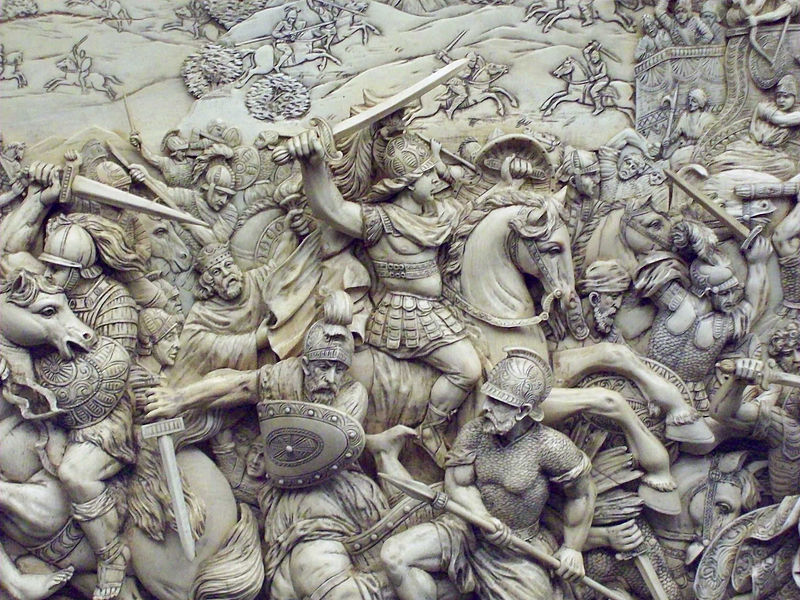
“LEEEEERRROOOOOYYY JENNNKIIINNNSSS!!”
Alexander v Darius: Round 2
The year was 331 BCE. The armies of Alexander and Darius stared one another down across the plain. The two faced off at the Battle of Gaugamela. Alex’s army was split into three factions in an attempt to envelope his enemy from multiple angles, but Darius was ready for him with one of the largest armies the world had ever seen.
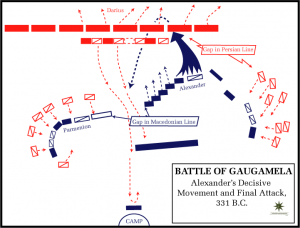
Darius had all of his men spread out in a long line with him at the center. Alexander had infantry on the left and led his cavalry on the right, while the rest of his army hung back. After defeating waves of Persian chariots, Alexander led a wedge formation straight for Darius himself in one of history’s craziest, most balls out charges! During the frantic fighting, Darius’s chariot driver was impaled by a javelin, which led to Darius’s army thinking their leader had been slain! The Persian line devolved into pure chaos as Darius fled the battle, barely surviving the onslaught as Alexander’s forces made quick work of what was left of Darius’s army.
Alexander vowed to chase Darius to the ends of the Earth. Darius planned to raise another army and strike back. Fate had something else in store entirely. Darius demanded loyalty, but his men ultimately betrayed him. After hunting Darius for months, Alexander found his body in a creek. Darius was dying – stabbed by one of his closest allies, chained to a cart and bleeding out all over his fancy robes. Alexander, pissed at Darius’s commanders for stealing his glory from him, swore to avenge his fallen enemy… that he had previously swore to kill.
In 330 BCE, Alexander the Great and his army marched into Babylon, the capitol of the Persian Empire, unopposed! It was there that Alex and his bros found more wealth than they ever thought possible! Alexander claimed that Darius had named him as his successor with his dying breath. As the new ruler of the Persian empire, Alexander gained an untold fortune of loot and became the wealthiest and most powerful man of the ancient world, over night!

After paying his troops, Alexander sent a massive sum of money back home – six times the annual income of Athens! Meanwhile, Alex and his men were living large in Babylon. In fact, the burning of the Persian city of Persepolis may have actually been the result of a party that got waaay out of hand. Alexander embraced decadence and just generally stopped giving a crap all together.

The Dude abides.
During this time, Alexander’s new “King of Kings” title started to go to his head. After a couple years, flaunting around in Persian robes and adopting their customs, Alexander’s Greek troops started to whisper behind his back, worried that he was no longer the hero they’d worshiped, he’d gone native.
But things turned tragic at a particularly drunken banquet in 328 BCE…
Alexander kills his BFF
Alexander and his best friend, Cleitus the Black, got into an argument that turned violent. Alex told Cleitus he was going to send him in charge of a contingent of former Greek mercenaries to take care of some nomads in Central Asia. Cleitus (the man who saved Alexander’s life at the Battle of Granicus), was insulted at the thought of being sent to the middle of nowhere in charge of second-rate soldiers. Cleitus got all riled up and gave Alexander a piece of his mind.
Alexander ignored him and went on and on about how much better he was than his father. Cleitus shot back – saying he was half the man his dad was and that all his achievements were thanks to him. Alexander yelled for his guards in anger, but they decided to sit this one out. Alexander threw an apple at Cleitus’s head and then grabbed for his dagger. Alexander’s buddies confiscated the dagger and held him back. The party goers managed to separate the two angry drunks. Alex drunkenly attempted to sound the call to arms. Right as he managed to get his hands on a javelin, Cleitus popped his head back into the room with another come back ready, but before he could utter “And another thing!” – Alexander speared him through the chest.
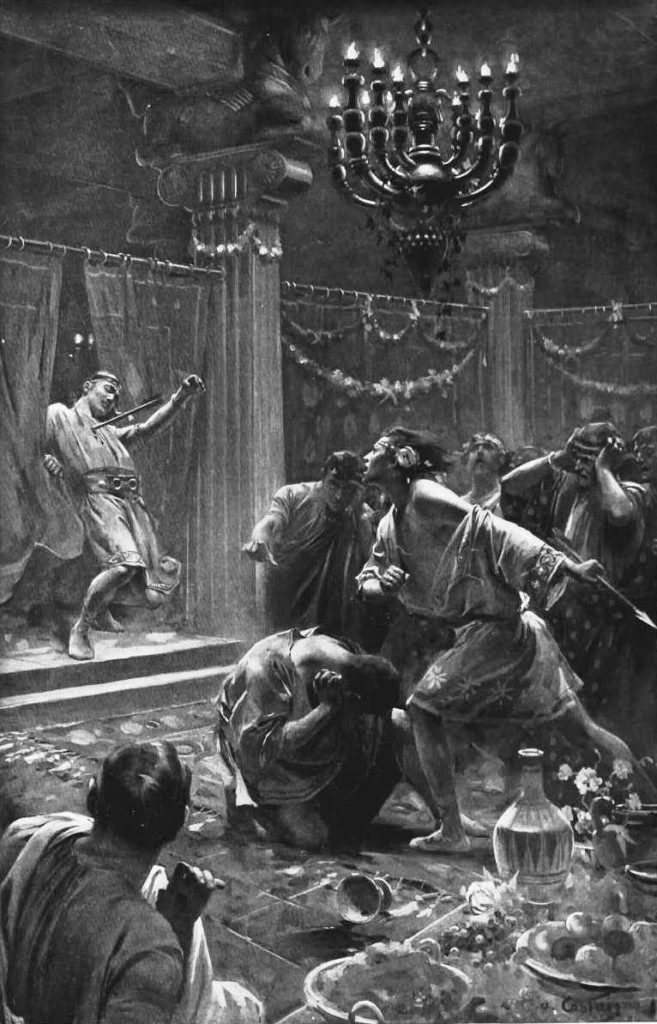
After drunk stabbing his bestie, Alexander went into a deep depression and began to drink even more. All the while, Alexander’s army continued to party hard in Babylon until 327 BCE, when he finally pulled himself out of his drunken stupor and decided it was time to start conquering again…
Alexander goes to India
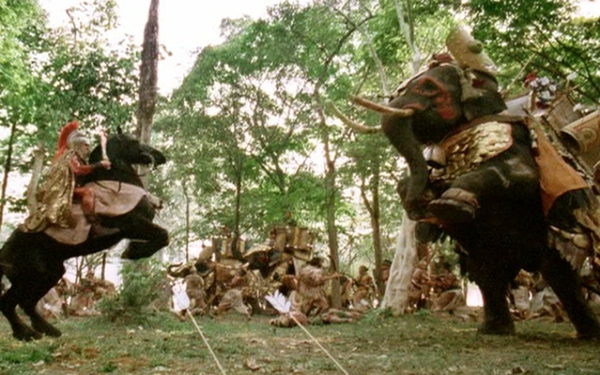 Alexander the Great marched his forces East towards the unknown, in an attempt to spread his rule to the furthest reaches of the world: India. This time however, he bit off a little bit more than he could chew. Alexander and his men faced off against war elephants, fierce warriors and a harsh tropical climate, far from home, in a strange new land they had no bearing on. During his campaign through India, Alexander got himself wounded on a couple of occasions: taking a dart to the shoulder and later an arrow to the ankle. During the Battle of Hydaspes, Alexander was nearly defeated and even lost his loyal horse.
Alexander the Great marched his forces East towards the unknown, in an attempt to spread his rule to the furthest reaches of the world: India. This time however, he bit off a little bit more than he could chew. Alexander and his men faced off against war elephants, fierce warriors and a harsh tropical climate, far from home, in a strange new land they had no bearing on. During his campaign through India, Alexander got himself wounded on a couple of occasions: taking a dart to the shoulder and later an arrow to the ankle. During the Battle of Hydaspes, Alexander was nearly defeated and even lost his loyal horse.
After the battle, Alexander appointed the defeated Indian general, Porus, as governor of the region and then named a city after his fallen horse. When Alexander arrived at the edge of the Ganges River, ready to take on the powerful combined might of the Gangaridai Empire of Bengal and the Nanda Empire of Magadha, his men finally threw in the towel. Alexander’s army refused to cross the river and follow him any further. They were tired, some of them hadn’t seen their families in years, and they faced certain doom if they followed Alexander any further on his suicidal quest for grandeur.
Alexander’s general, Coenus, persuaded Alexander to change his mind and turn back, reinforcing that his men “longed to again see their parents, their wives and children, their homeland”. On the long 60-day march back through the Gedrosia Desert, Alexander lost three-quarters of his army to heat and exhaustion.
Alexander the Great Failure?
Alexander (the Great) was far ahead of his time championing progressive ideals like freedom, and education.
He also was responsible for the deaths of hundreds of thousands of innocent people in a vain conquest for glory…
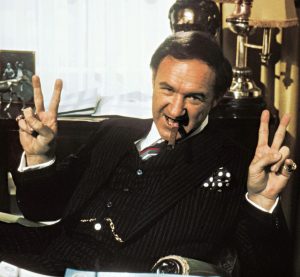
Lex Luthor approves.
Then, on June 11th, 323 BCE, Alexander the Great died unexpectedly, at the height of his power at just 32 years old. Unfortunately, he didn’t leave a proper successor to the throne…
Which meant that the those closest to him spent the rest of their lives fighting over the Kingdoms of Alexandria like hungry, hungry hippos fighting over the last chicken leg at the bottom of a bucket of KFC. Ultimately, Alexander himself was responsible for the eventual (inevitable) collapse of the vast empire he spent his entire life building. There’s a lot of speculation surrounding the death of Alexander the Great, some think he was poisoned, but more likely he poisoned himself with weeks upon weeks of binge-drinking.

Despite all his glorious conquests, it could be argued that Alexander was a colossal failure, ultimately leaving behind the world a more chaotic place than the one he was born into. Much of his legend can be attributed to egotistical self-promotion. Alexander had a vision of the future, but it never came to fruition. Although his Macedonian Empire may have had an early expiration date, from its ashes a new world power emerged that would forever shape the course of the future: Rome.
ERIK SLADER
Thanks for reading! If you’re a fan of the blog, be sure to listen to the Epik Fails of History podcast and check out my all new “EPIC FAILS” book series – available now wherever books are sold!
—– More articles on Historic Failure:
A SPARTAN’S TALE, XERXES FAILS
—Sources:
“Alexander the Great Failure” by John D. Grainger
“The Death of Alexander the Great” by Paul Doherty
“The Book of Ancient Bastards” by Brian Thornton
“Outnumbered” by Cormac O’Brien
Dan Carlin’s “Hardcore History” (podcast)
Alexander the Great – Creating the Legend (Bio Documentary)
All Time Greatest Commanders: Alexander the Great (History Channel Documentary)
Battles BC: Alexander – Lord of War (documentary)
“Alexander” (2004) – Directed by: Oliver Stone, starring: Colin Farrell
http://www.history.com/topics/ancient-history/alexander-the-great
http://www.historyofmacedonia.org/AncientMacedonia/AlexandertheGreat.html
http://www.biography.com/people/alexander-the-great-9180468
http://www.ancientbattles.com/Issus/Issus.htm
http://burnpit.legion.org/2012/10/battle-gaugamela-alexander-great-defeats-king-darius-persia



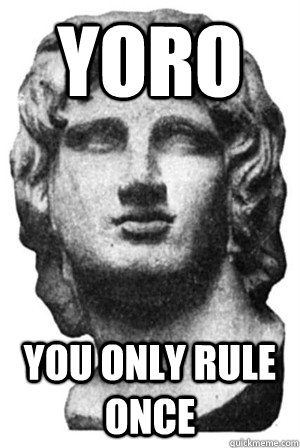 JULIUS CAESAR
JULIUS CAESAR
